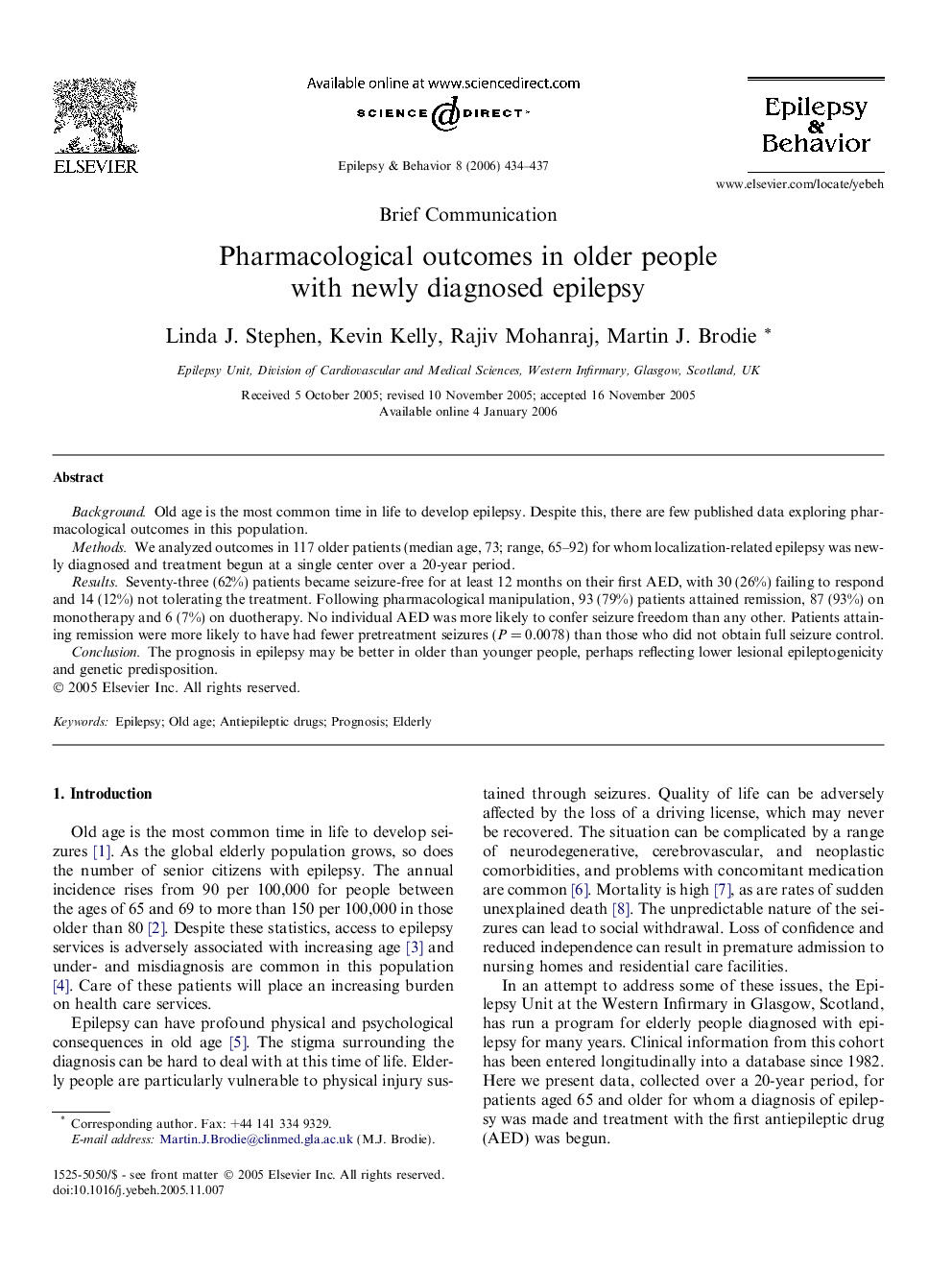| Article ID | Journal | Published Year | Pages | File Type |
|---|---|---|---|---|
| 3051576 | Epilepsy & Behavior | 2006 | 4 Pages |
BackgroundOld age is the most common time in life to develop epilepsy. Despite this, there are few published data exploring pharmacological outcomes in this population.MethodsWe analyzed outcomes in 117 older patients (median age, 73; range, 65–92) for whom localization-related epilepsy was newly diagnosed and treatment begun at a single center over a 20-year period.ResultsSeventy-three (62%) patients became seizure-free for at least 12 months on their first AED, with 30 (26%) failing to respond and 14 (12%) not tolerating the treatment. Following pharmacological manipulation, 93 (79%) patients attained remission, 87 (93%) on monotherapy and 6 (7%) on duotherapy. No individual AED was more likely to confer seizure freedom than any other. Patients attaining remission were more likely to have had fewer pretreatment seizures (P = 0.0078) than those who did not obtain full seizure control.ConclusionThe prognosis in epilepsy may be better in older than younger people, perhaps reflecting lower lesional epileptogenicity and genetic predisposition.
